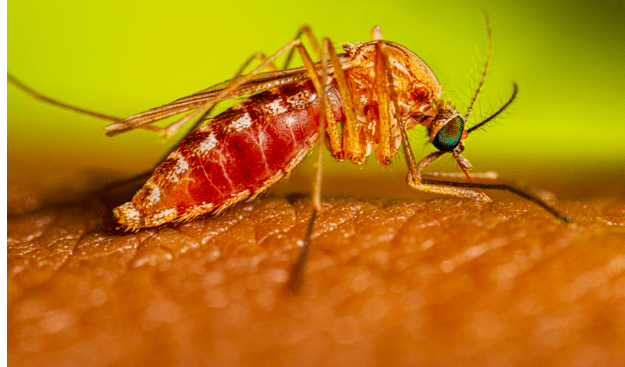Trending Stories
Surge in West Nile Virus Detection Across the United States

Surge in West Nile Virus Detection Across the United States
Health authorities nationwide are registering an uptick in cases and detections of the West Nile virus, commonly transmitted through mosquito bites.
This is a growing public health concern, particularly as summer approaches and outdoor activities increase, leading to a higher likelihood of mosquito interactions.
Detections from Coast to Coast: The West Nile Virus Situation
In Plymouth County, Iowa, health officials confirmed the year’s first case of West Nile virus in an individual between 61 and 80 years old.
The Iowa Department of Health and Human Services cautioned that warm summer weather could increase the risk of mosquito bites and virus transmission.
Similarly, in the first week of June, Nebraska’s Department of Health and Human Services reported its first human case within the Three Rivers Public Health District. It is crucial to note, however, that the individual had not been hospitalized.
The Nationwide Picture: CDC Data and State Reports
The reported states include Oregon, Arizona, Wyoming, Nebraska, Illinois, Louisiana, Georgia, South Carolina, and Pennsylvania. Notably, four of these cases originated from the Copper State, Arizona.
Moreover, Harris County in Texas has seen a positive West Nile virus sample in a mosquito from a trapping site located in the southwest.
In response, the county’s Public Health Mosquito Vector Control Division plans to initiate evening spray operations to control the mosquito population and prevent the virus from spreading further.
Proactive Measures Against West Nile Virus
Our comprehensive mosquito surveillance program is crucial for identifying the presence of the virus in our community, thereby guiding our control efforts to safeguard our residents better,” said Division Director Dr. Maximea Vigilant.
With the West Nile virus first detected in the area back in 2002, the county continues to remind residents to protect themselves against mosquito-transmitted diseases, especially during the summer months.
The Situation in Nevada
Meanwhile, in Nevada, the Southern Nevada Health District recently revealed that they detected the first virus-positive mosquitoes of the season in Clark County.
Despite no human cases being reported this year and minimal activity over the past three years, it’s crucial to remember that the virus reached unprecedented levels of activity in including one fatality.
The positive mosquito results illustrate that the West Nile virus is active in southern Nevada. Residents need to be vigilant about eliminating mosquito breeding sources and protecting themselves from mosquito bites,” District Health Officer Dr. Fermin Leguen stated.
Preventing and Managing West Nile Virus Infections
West Nile virus cases typically surface during mosquito season, from summer through fall. Currently, there are no specific vaccines or medications to treat the virus in humans.
advises that while most people infected with the virus do not experience symptoms, approximately one in five infected individuals develop fever and other symptoms.
Additionally, about 1 out of 150 infected people develop a severe and sometimes deadly illness. Therefore, it is of paramount importance to take precautionary measures to reduce the risk of mosquito bites, especially in areas where West Nile virus cases have been reported
The Signs and Symptoms of West Nile Virus
Most people infected with West Nile virus do not exhibit any symptoms. However, about 20% may experience symptoms such as fever, headache, body aches, joint pains, vomiting, diarrhea, or rash.
Most of these individuals recover fully, but fatigue and weakness can linger for weeks or even months. Approximately 1 out of 150 infected people will develop severe illnesses affecting the central nervous system.
These can include encephalitis (inflammation of the brain) or meningitis (inflammation of the membranes surrounding the brain and spinal cord).
Symptoms of severe illness can include high fever, headache, neck stiffness, stupor, disorientation, coma, tremors, convulsions, muscle weakness, vision loss, numbness, and paralysis.
Preventive Measures Against West Nile Virus
With no vaccine available for West Nile virus, prevention depends on community and individual efforts to reduce mosquito populations and avoid bites.
It is recommended that individuals wear long-sleeved shirts and long pants, especially during the evening when mosquitoes are most active. Using insect repellents approved by the Environmental Protection Agency (EPA) can also offer significant protection.
Furthermore, it is crucial to maintain window and door screens to keep mosquitoes out of homes and eliminate standing water, a common breeding site for mosquitoes.</p> The
Need for Vigilance and Cooperation.
As the summer months bring increased outdoor activities, the need for vigilance and cooperation from all stakeholders is crucial in the fight against the West Nile virus.
State health departments, local health authorities, and individuals must all work together to monitor mosquito populations, detect the virus early, and take the necessary precautions to prevent its spread.
Only through a collective effort can the nation effectively address the risk of the West Nile virus and ensure the health and safety of its citizens.
References
- https://www.cdc.gov/westnile/index. HTML” Centers for Disease Control and Prevention (CDC) is a reliable source for detailed and up-to-date information about the West Nile virus. The CDC website provides insights into symptoms, treatments, and prevention methods.
- https://www.who.int/news-room/fact-sheets/detail/west-nile-virus” World Health Organization (WHO) offers global perspectives on the West Nile virus, its prevalence, and the preventive measures adopted worldwide.
- https://www.epa.gov/insect-repellents” Environmental Protection Agency (EPA) offers guidelines on the use of insect repellents to protect against mosquito bites effectively.
- https://idph.iowa.gov/cade/disease-information/west-
- “https://www.southernnevadahealthdistrict.org/programs/mosquito-surveillance/west-nile-virus/”
- “https://www.hcphtx.org/Resources/Mosquito-and-Vector-Control/ Mosquito-and-Vector-Control” Harris County Public Health Mosquito Vector Control Division provides valuable insights.
Trending Stories
Sister Regina Liu: Empowering Health Through Acupuncture

Sister Regina Liu: Empowering Health Through Acupuncture
In the bustling world of healthcare, Sister Regina Liu stands out as a beacon of holistic healing. Her journey into the world of acupuncture is not only inspiring but also transformative for the countless individuals she has treated.
Through her dedication, Sister Regina has brought traditional Chinese medicine to the forefront, offering an alternative and complementary approach to modern medical practices.
The Journey of Sister Regina Liu
Sister Regina Liu’s path to becoming a renowned acupuncturist began with her deep-rooted interest in holistic health. Born into a family that valued traditional Chinese medicine, Sister Regina was exposed to the benefits of acupuncture from a young age. Her early fascination turned into a lifelong passion as she pursued formal education and training in the field.
Acupuncture: Bridging Ancient Wisdom and Modern Health
Acupuncture, a practice with origins in ancient China, involves inserting thin needles into specific points on the body to balance the flow of energy or “qi.” Sister Regina Liu has mastered this ancient art, using it to address a wide range of health issues.
From chronic pain to stress management, her expertise has provided relief to many who had exhausted conventional treatment options.
Impact on Community Health
Sister Regina’s impact extends beyond individual treatments. She has been instrumental in educating the community about the benefits of acupuncture, breaking down misconceptions, and making the practice more accessible.
Her workshops and seminars have enlightened many about the holistic approach to health, emphasizing the interconnectedness of body, mind, and spirit.
Success Stories and Testimonials
The success stories of Sister Regina’s patients are a testament to her skill and dedication. Many individuals who had lost hope found solace in her treatments.
For instance, Maria, a long-time sufferer of migraines, experienced significant relief after just a few sessions with Sister Regina. Her story is just one of many that highlight the transformative power of acupuncture under Sister Regina’s care.
Challenges and Triumphs
Like any journey, Sister Regina’s path was not without challenges. Integrating acupuncture into mainstream healthcare faced resistance initially.
However, her perseverance and the undeniable results of her treatments gradually won over skeptics. Today, Sister Regina is not only respected in the field of acupuncture but also in the broader medical community.
The Science Behind Acupuncture
While acupuncture is rooted in ancient practices, modern science has begun to unravel the mechanisms behind its effectiveness. Studies have shown that acupuncture can stimulate the release of endorphins, the body’s natural painkillers, and improve blood circulation.
These scientific validations have further cemented acupuncture’s place in contemporary healthcare, thanks in part to advocates like Sister Regina Liu.
Acupuncture in Modern Healthcare
Sister Regina’s work exemplifies how traditional practices can complement modern medicine. Hospitals and clinics increasingly incorporate acupuncture into their treatment plans, recognizing its benefits in pain management, mental health, and overall well-being. This integration signifies a broader acceptance and understanding of holistic health practices.
Future Vision
Looking ahead, Sister Regina Liu envisions a future where acupuncture and traditional Chinese medicine are fully integrated into the global healthcare system. She continues to advocate for research, education, and policy changes that support the inclusion of holistic practices in mainstream medicine.
How to Get Started with Acupuncture
For those new to acupuncture, Sister Regina offers practical advice on getting started. She recommends finding a certified acupuncturist, understanding the treatment process, and maintaining an open mind. Her guidance helps demystify acupuncture, making it more approachable for newcomers.
Conclusion
Sister Regina Liu’s journey in empowering health through acupuncture is a remarkable tale of dedication, resilience, and success. Her contributions have not only alleviated individual suffering but also enriched the broader understanding of holistic health. As acupuncture continues to gain recognition, Sister Regina’s legacy will undoubtedly inspire future generations of healers.
FAQs
1. What conditions can acupuncture treat?
Acupuncture can address various conditions, including chronic pain, migraines, stress, anxiety, digestive issues, and more. It is also used to support overall wellness and balance.
2. Is acupuncture safe?
Yes, when performed by a certified and experienced acupuncturist, acupuncture is safe. It involves using sterile, single-use needles and adhering to proper hygiene practices.
3. How many sessions are needed to see results?
The number of sessions varies depending on the condition and individual response. Some may experience relief after one session, while others may need multiple treatments.
4. Does acupuncture hurt?
Acupuncture needles are very thin, and most people feel minimal to no discomfort. Some may feel a slight tingling or warmth at the needle site.
5. How do I find a qualified acupuncturist?
Look for acupuncturists who are certified by recognized professional organizations and have positive patient reviews. Personal recommendations and consultations can also help in making an informed choice.
References
Trending Stories
In 2 Shape Gym Unveils Major Expansion in Stourport
Trending Stories
9 Reasons Why In-Person Friendships Are Irreplaceable
-

 Trending Stories1 year ago
Trending Stories1 year agoCDC: 1 in 4 Americans Still COVID-Free by End of 2022
-

 Health5 years ago
Health5 years agoMeghan Trainor Shares Motivational New Song ‘Blink’
-

 Health2 years ago
Health2 years agoHow Long Does Monkey Pox Last Before It Surfaces in the Body?
-

 Health2 years ago
Health2 years agoWhat Causes Swollen Body? Understanding Edema and its Triggers
-

 Health3 years ago
Health3 years agoNutrition and the Importance of a Fitness Program – 3 Things to Know
-

 Health3 years ago
Health3 years ago5 Weird Reasons Why Pimples Disappear After Marriage
-

 Health3 months ago
Health3 months agoHow Do Pawpaw Seeds Support Cardiovascular Health?
-

 Health2 years ago
Health2 years agoHealth Benefits Of Pawpaw Seed? 7 Things To Know







